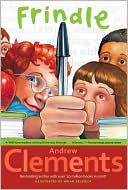In the last few weeks of school, we're going to learn about rocks and minerals! Our exploration will begin by studying cave formations--after all, we'll be visiting Indian Echo Caverns in a few weeks.
Here are some fun cave websites to explore.
Cave formation animation: This site shows how caves form.
How are caves different? This fun site for kids shows differences between life in caves and life above ground.
What in the world is karst? While Adams County is not home to many karst formations, much of Pennsylvania is. Learn about karst with animations and info on this page.
Indian Echo Caverns: Learn more about Indian Echo on this page.
Saturday, April 23, 2011
Saturday, April 16, 2011
Literature Circles in Fourth Grade
Fourth grade is such an interesting year for reading instruction! The first few months are focused on consolidating everything that students have learned in grades K-3. We look at how stories are put together, how we can summarize stories, and how to find story elements. In these months, our focus is on the literal level--what happened? Who is in the story? How do the events fit together?
But as fourth graders mature, we move into looking at literature in new ways. Now that students can read and understand stories at the literal level, it's time to take them a step beyond. Literature circles are a great way to do this. When students read novels with their peers, they can talk about the ideas in the books and share their new understandings. Our focus moves beyond just "What happened?" and into the deeper questions below.
Dialogue: Why do authors use dialogue? How can we tell who is speaking?
Characters: How do characters change throughout a story? Why are these changes important?
Setting: How is the setting important to the story? Could the story happen in a different setting? How would the events change?
Theme: What are some themes to this novel? How do the events of the novel support these themes?
Figurative language: How does the author use words in new and interesting ways? Why did the author choose these particular words? What do we like about an author's language choices?
The move from looking at literature at a literal level to thinking more deeply can be a difficult one. However, I'm so impressed at how students are thinking and learning! Even more, students are asking for new books. One student said, "Mrs. Kissner, we're finished our books--I hope you have new ones for us on Monday." This is something that I will gladly prepare.
But as fourth graders mature, we move into looking at literature in new ways. Now that students can read and understand stories at the literal level, it's time to take them a step beyond. Literature circles are a great way to do this. When students read novels with their peers, they can talk about the ideas in the books and share their new understandings. Our focus moves beyond just "What happened?" and into the deeper questions below.
Dialogue: Why do authors use dialogue? How can we tell who is speaking?
Characters: How do characters change throughout a story? Why are these changes important?
Setting: How is the setting important to the story? Could the story happen in a different setting? How would the events change?
Theme: What are some themes to this novel? How do the events of the novel support these themes?
Figurative language: How does the author use words in new and interesting ways? Why did the author choose these particular words? What do we like about an author's language choices?
The move from looking at literature at a literal level to thinking more deeply can be a difficult one. However, I'm so impressed at how students are thinking and learning! Even more, students are asking for new books. One student said, "Mrs. Kissner, we're finished our books--I hope you have new ones for us on Monday." This is something that I will gladly prepare.
Tuesday, April 12, 2011
Planetarium Visit
Today, we braved the rain to visit the Hatter Planetarium at Gettysburg College! Bill, a very knowledgeable college student, gave us a tour of our solar system and the night sky.
Students loved the comfy seats and the illuminated dome. But their favorite part was when we learned about meteor showers and watched the asteroids zoom by. Exciting!
Students had excellent questions, ranging from questions about constellation locations, supernovas, and the discovery of the universe. (Wow!) Luckily, our tour guide has a dual major in physics AND philosophy--definitely a plus when talking to fourth graders.
Looking to Learn More?
The Hatter Planetarium offers monthly public events. You can find their schedule at their website.
You can find a monthly sky map here.
NASA has amazing games for kids! You can visit their Kids Club to find games. Or, if you'd like to catch up on the latest news or browse image galleries, you can visit their Education Center.
 |
| We liked looking at the mechanical equipment at the planetarium! |
Students loved the comfy seats and the illuminated dome. But their favorite part was when we learned about meteor showers and watched the asteroids zoom by. Exciting!
Students had excellent questions, ranging from questions about constellation locations, supernovas, and the discovery of the universe. (Wow!) Luckily, our tour guide has a dual major in physics AND philosophy--definitely a plus when talking to fourth graders.
Looking to Learn More?
The Hatter Planetarium offers monthly public events. You can find their schedule at their website.
You can find a monthly sky map here.
NASA has amazing games for kids! You can visit their Kids Club to find games. Or, if you'd like to catch up on the latest news or browse image galleries, you can visit their Education Center.
Subscribe to:
Comments (Atom)
